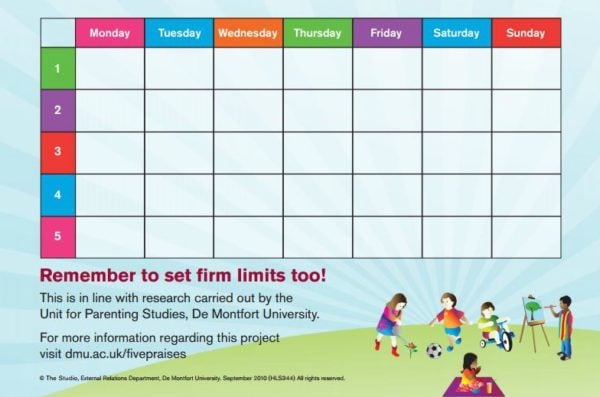An educator at my child’s day care recently told me exactly how to praise my two-year-old son.
His childcare centre’s approach is about praising specific behaviour.
Don’t say, “good boy” – it’s better to say, “good listening” – or so they say.
It sounds like a beginner’s English lesson gone wrong, “good eating” or “good talking” or “good packing away Charlie”.
Apparently this kind of praise works best if done five times a day, according to a new study as mentioned in Time.
De Montfort University researchers found parents who praised their kids five times a day saw an improvement in their children’s wellbeing as opposed to parents that weren't keeping track.

The study, based on two to four-year-olds, has coincided with the UK university's "Five Praise Campaign".
"It is all too easy to ignore children when they are doing as they are told and playing quietly, giving hard pressed parents a few minutes’ peace," says the campaign's website.

